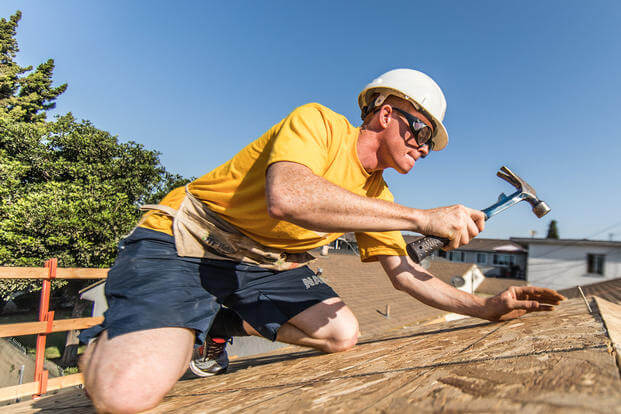Manual labor jobs can be one of the best ways to prepare for military service. Basic training and boot camp are a constant grind of moving, standing and exercising spread throughout a long day.
You should also add workouts designed to prepare specifically for your upcoming military training or selection process. Here is a great question from a young man seeking to join the Army and go into the Ranger program.
Stew, I am an Army recruit who works in construction. Do you recommend running after lifting 50-60 pounds for 7 hours a day? How would you prepare for Army training, testing and selection after this type of manual labor? Thanks, Jeff.
Jeff, I often explain to recruits that there are usually three things that determine how you should prepare for military service.
1. Current Fitness Level
What are your current scores on the Army Physical Fitness Test (APFT) and the Army Combat Fitness Test (ACFT)? Test yourself and see how you score on the grade sheets. While it is not the only thing you should prepare for, passing these tests with no problem will help you tremendously during the starting year of your Army career.
Note: You may see the old Army PFT at some point in your recruitment phase, but you will definitely see the Army Occupational Physical Assessment Test (OPAT) during basic training and the new ACFT throughout your time in the Army.
2. Athletic History
The exercises you did to prepare to play sports or participate in other athletic activities will determine your current strengths and weaknesses. For instance, endurance athletes will have no issues with the running portion of the fitness tests but may struggle or need to focus their preparation on gaining strength for lifting, rucking and calisthenics. The opposite holds true for the strength and power athlete, as their weakness will likely be the test's running and endurance events.
3. Work and Training Time Available Each Day
The amount of physical activity during your workday also matters as you plan how to train for other events. First, long days on your feet will be excellent training for a typical day in the Army, so construction is perfect compared to a job where you sit all day at a computer or one where you spend long hours driving vehicles.
Add load-bearing to the work effort, and you have the building blocks for the type of strength, durability and work capacity needed for long rucks and other equipment-carrying tasks.
Once you determine your status in these three areas, you can determine the best way to prepare. Focus on your weaknesses either before your workday starts or after it is over is the logical answer to your question.
How to address your training specifically depends on your current level of fitness, strengths, weaknesses and the time each day you have to train. Check out specific Army training programming.
My advice is to take the tests mentioned above to see where you need to improve and go from there. You may find you can spend time focusing on more endurance-based training and specific exercise training each day.
The smart answer is to progress logically with your total miles per week of running. Start to incorporate rucking as a good way to top off any leg-day exercises. Save a longer ruck for the weekend. Take a day in the middle of the week to focus on mobility and flexibility and a weekend day as a rest day from the week's rigorous activity.
Stew Smith is a former Navy SEAL and fitness author certified as a strength and conditioning specialist (CSCS) with the National Strength and Conditioning Association. Visit his Fitness eBook store if you're looking to start a workout program to create a healthy lifestyle. Send your fitness questions to stew@stewsmith.com.
Want to Learn More About Military Life?
Whether you're thinking of joining the military, looking for fitness and basic training tips, or keeping up with military life and benefits, Military.com has you covered. Subscribe to Military.com to have military news, updates and resources delivered directly to your inbox.


















